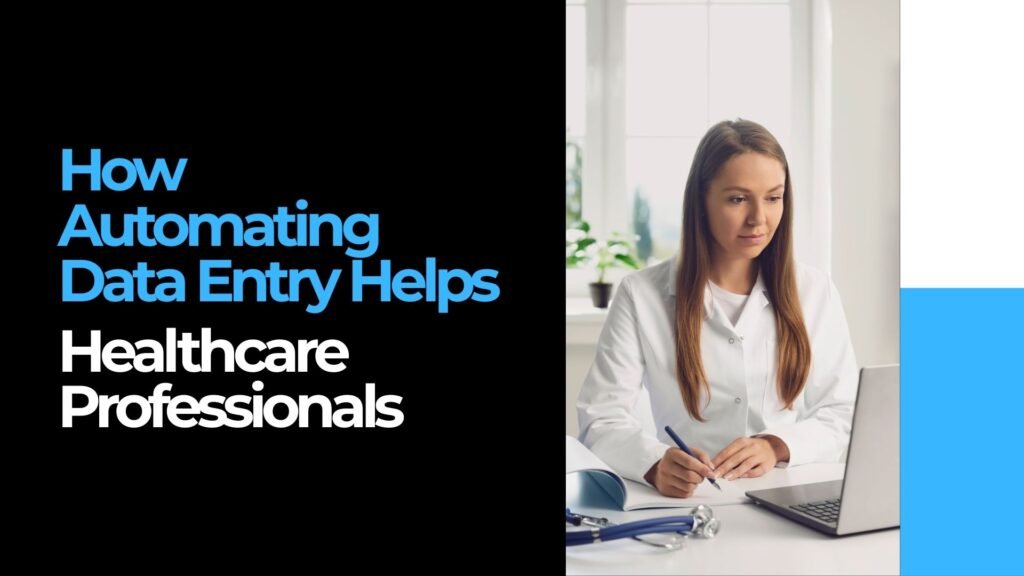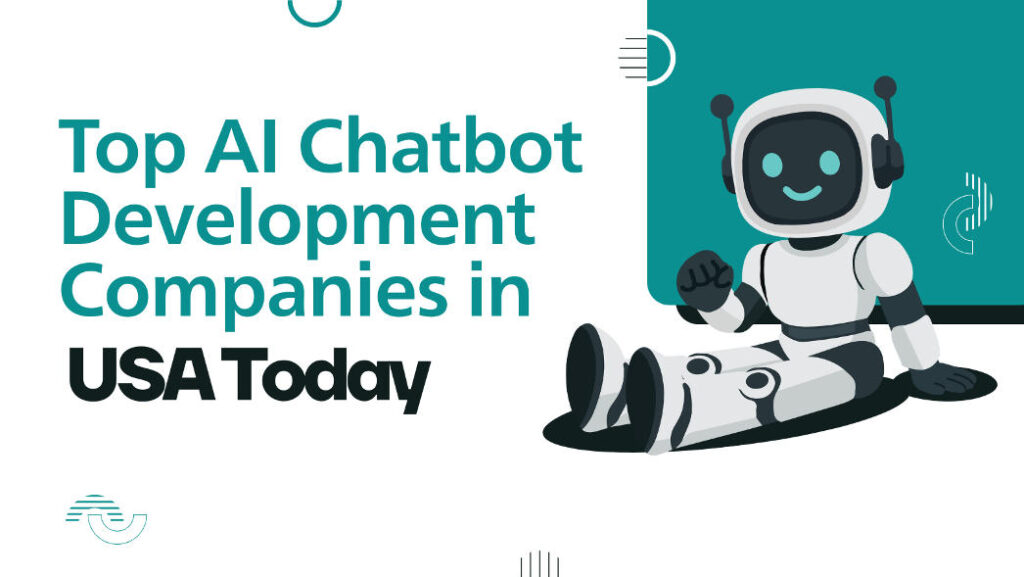The healthcare industry is the place where innovation and necessity meet. Each day, hospitals, clinics, labs, and insurance companies produce too much data–patient records, diagnostic reports, billing codes, prescriptions, and insurance claims. The efficient management of this information is crucial to the safety of patients, their compliance, and the success of the operations. Still, manually entering data remains one of the most time-consuming and inaccurate activities in healthcare.
This is where automation of data entry services is changing things. Through the utilization of innovative technology, such as RPA services, agentic AI services and solutions, and AIML services, healthcare providers can automate the working process, save the budget, and enhance patient outcomes. In most instances, partnering with an automation firm in my area would be the guarantee of implementation, compliance, and long-term success.
This article goes into specifics of how data entry automation services will make healthcare more efficient, the technology behind it, and the future of automation in healthcare.
The Challenges Of Manual Data Entry In Healthcare
Healthcare has long been involved with manual data entry. Whether it is capturing patient information at the time of admission or coding medical diagnoses to submit claims to the insurance companies, employees waste endless hours of their time moving patient information through different systems.
Nonetheless, there are a few issues with this dependence on manual data:
High Error Rates
Human error is unavoidable. False entry of patient records may include inaccuracy through typing, interpretation of the handwriting, and duplication of data, which subsequently impacts the treatment decisions and billing accuracy.
Time-Consuming Processes
Employees are wasting time every day inputting information. This decreases the time spent with patients and burnout.
Increased Costs
The employment of personnel in the repetitive sectors increases the costs of operations without enhancing care delivery to patients.
Compliance Risks
Mishandling of data may lead to violations of rules such as HIPAA, which would result in fines for organizations.
The shift towards data entry automation services instead of manual operations is not only helpful but necessary.
What Are Data Entry Automation Services?
Data entry automation services are technologies and tools that automatically collect, process, and enter data into healthcare systems with minimal or no human intervention. All the work, such as document scanning and reshaping the electronic health records (EHRs), is done by automation software rather than by ensuring that the staff manually inputs the patient data.
Such services often have a mixture of multiple technologies, including:
- RPA services – Bots, designed to replicate human behaviour, such as keystroke and clicking, to transfer data between systems.
- Optical Character Recognition (OCR) – Software that is used to scan either written or printed materials and turn them into digital text.
- Natural Language Processing (NLP) – The technology, which deals with unstructured text, including physician notes.
- Agentic AI services – Context-sensitive AI systems that can make decisions and deal with exceptions.
- AI-ML services – The Artificial Intelligence and Machine Learning systems, which constantly enhance their accuracy by learning from data patterns.
These solutions allow quicker, more dependable, and scalable data input together.
Advantages Of Data Entry Automation In The Health Sector
Automation has many advantages as opposed to manual entry.
Improved Accuracy
In healthcare, the difference between life and death may be reliant on accuracy. Automated systems reduce the occurrence of errors when it comes to transcription as the records of the medications, patient histories, and lab results are properly documented. Automation of data entry services offers consistency and reliability throughout the data lifecycle.
Faster Workflows
RPA services enable the processing of data that was previously carried out in hours to be done within minutes. The patient intake, claims processing, and test result reporting are performed much quickly, cutting down the delays of treatment and reimbursement.
Cost Savings
This lowers administrative overhead by reducing manual labor for healthcare providers. Hospitals and clinics are able to spend resources in a more efficient way, either through the upgrade of medical equipment, additional hiring of clinical staff, or the expansion of the facilities.
Improved Patient Experience
The elimination of administrative bottlenecks helps the patients enjoy shorter wait times, reduced billing disputes, and easier interaction with the staff. Doctors and nurses also get additional time to concentrate on patient care instead of paperwork.
Compliance and Security
Automation also implements standardization of processes and audit trails, which are critical to regulatory compliance. Computerized systems protect confidential information and lessen the chance of inadvertent disclosure.
Scalability
Due to the increasing demands in the field of healthcare, automation means that organizations will be able to manage growing amounts of data without a proportional rise in staff. With AIML services, systems are able to change and enhance their capabilities with new data formats or regulatory needs.
Real-World Applications Of Data Entry Automation
Automation is not a far-off concept; it is already changing the way healthcare operations are taking place in real life.
Intake and Registration of patients.
The patients fill out electronic forms, which are automated services for data entry and are uploaded to EHR systems immediately. This saves on the manual front desk work and errors.
Medical Billing and Coding
Medical coding is notorious because it is very complicated; automation makes it easier. AIML services can be used to use correct ICD-10 or CPT codes, and RPA services improve claim submissions and decrease denials.
Claims Processing under Insurance
End-to-end automation assures verification of claims, correction of claims, and submission by the due date. Even missing information can be found and remedied by agentic AI services to prevent claims being rejected.
The lab and Diagnostic Results
The OCR and AI technologies read the laboratory outcomes on the scanned documents or diagnostic images and update them on the patient files directly. Physicians are able to obtain essential findings in real time.
Clinical Documentation
The NLP and agentic AI services automatically organize doctors’ notes and prescriptions to make the records complete, accurate, and accessible.
The Automation Of Advanced Technologies
RPA Services
RPA services are efficient in dealing with repetitive tasks that are based on rules. Bots are fast and consistent in the process of migrating patient data across systems and even in making appointments.
Agentic AI Services
Agents’ AI services go a step further and make real-time decisions that are context sensitive. They do not merely read off the paper, but they also know exceptions. As an illustration, in case a patient file lacks lab results, agentic AI can be used to display a warning or automatically request the missing data.
AIML Services
Predictive capabilities can be obtained by using AIML services. These systems are able to predict patient admission spikes, identify abnormal billing behavior, and enhance coding precision in the long run by examining history.
Why Should You Work With An Automation Company In Your Locality?
There is one dilemma that healthcare providers always encounter: do I collaborate with massive international suppliers or select an automation firm close to me? Whereas international companies come with extensive knowledge, a local collaborator can be a better option as they offer more pragmatic benefits.
- Knowledge of regulations – A local supplier is familiar with local compliance regulations.
- High Quality – Regardless of HIPAA in the U.S. or data protection laws in other countries, a local company provides the guarantee that the data entry automation services are of high quality in healthcare.
- Quicker Help – In the medical field, time is of the essence. The local automation partners will be able to offer prompt, even on-site support, thus limiting the interference with the patient’s care.
- Custom Solutions – Each hospital has workflows that are unique. The local automation firm can tailor RPA services and automation systems to suit the processes without disturbance.
- Flawless Collaboration – The local businesses collaborate with the IT teams to align new resources with already implemented EHRs, billing, and lab systems to allow the adoption without disruption.
- Long-Term Reliability – Selecting an automation company that is in my local area will also imply developing a long-term relationship. The local providers have a vested interest in the success of the community and provide regular assistance and constant optimization.
Briefly, local partnerships are a blend of technical skills, accessibility, and trust, making the transition to automation by healthcare organizations easy and sustainable.
Future Of Data Entry Automation In Health Care
With the advancement in technology, increasing automation in healthcare can only be seen. Future trends include:
- Voice-to-Text Automation – Doctors will dictate notes to AI-driven systems, which will immediately update the patient records.
- Blockchain Implementation – Agentic AI service will be paired with secure and tamper-proof data sharing regarding transparency and trust.
- Predictive analytics – AIML services are able to predict patient demands and staffing needs and even forecast disease epidemics.
- Interrelated Systems – Automation will link hospitals, labs, insurers, and pharmacies, and minimize delays and errors.
These developments will eventually have automation be the foundation of healthcare management- time, fewer mistakes, and patient care at the forefront.
Conclusion
The use of manual data entry has been a bottleneck in the health sector, consuming resources as well as putting organizations at risk of errors and non-compliance. Healthcare providers are able to do away with inefficiencies, enhance the accuracy, and redirect the staff effort to patient care with the data entry automation services.
Through RPA services, agentic AI services, and AIML services, healthcare organizations are no longer involved in basic automation, but in intelligent, adaptive solutions that learn, scale, and evolve. The collaboration with an automation company that is relatively close to me will guarantee adherence, personalization, and continuous assistance, which will make the transition effective and efficient.
Automation is the future of healthcare efficiency. Individuals who adopt it today will be in a better position to face the challenges of tomorrow, providing better care and remaining competitive in the data-driven world.




